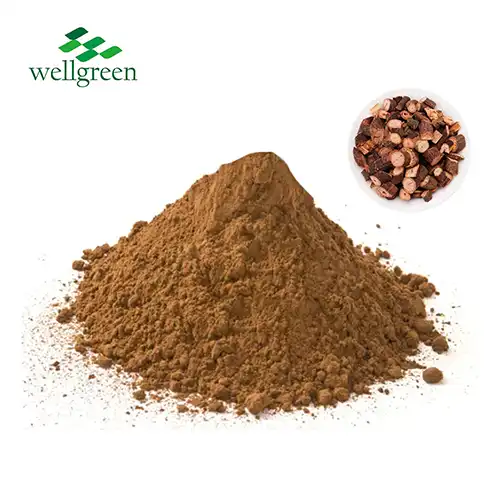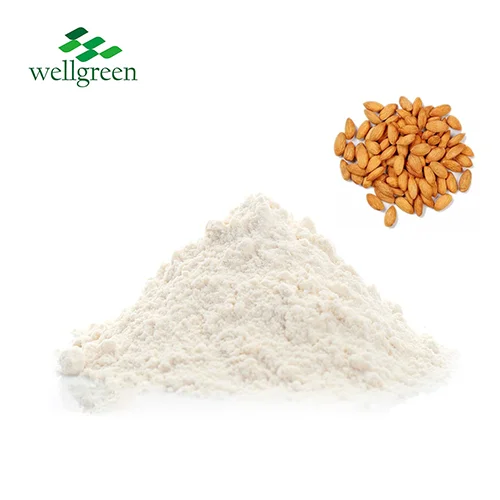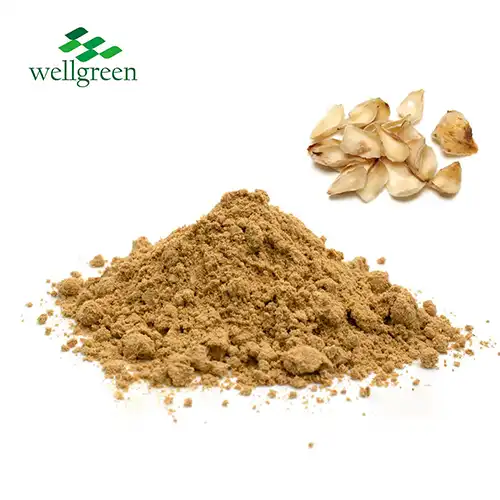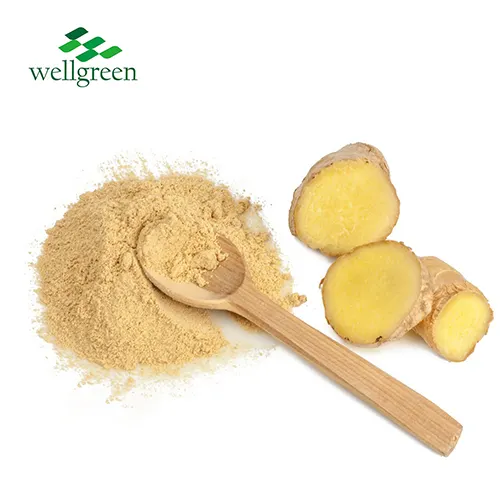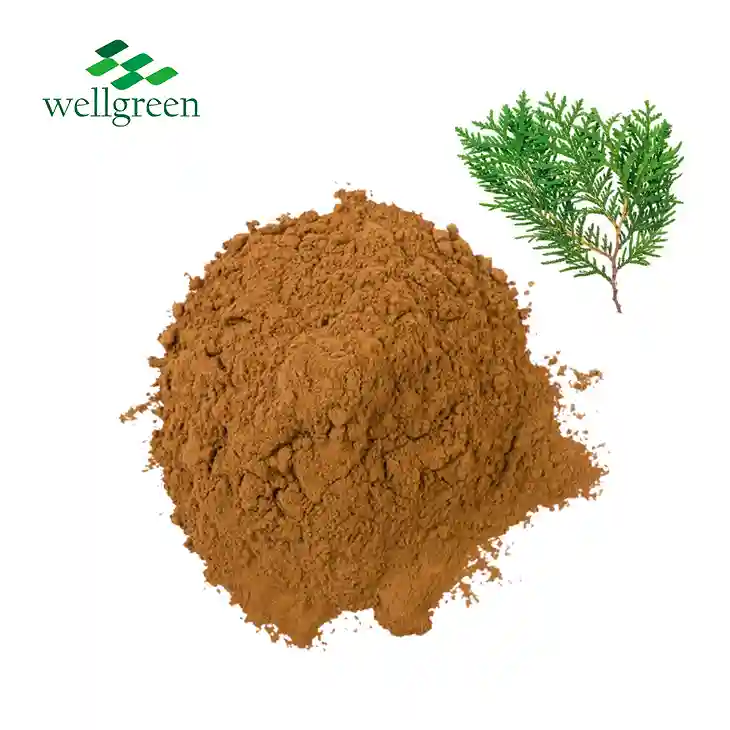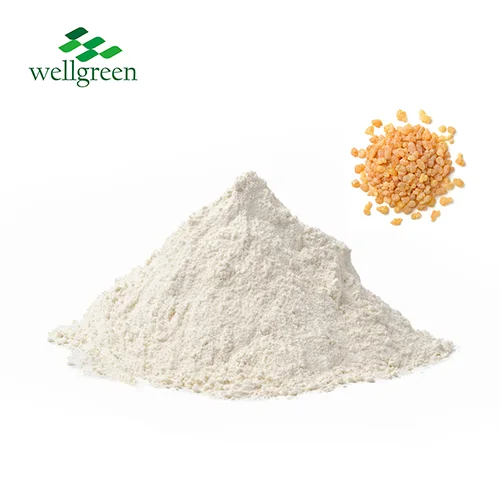Is Aloin Bad for Skin?
2023-12-13 10:56:40
Aloin, also known as barbaloin, is a compound found in the aloe vera plant. It is a yellow-colored liquid that oozes out when the leaves of the aloe plant are cut. Aloe Vera Extract Powder has been used both topically and orally for various health benefits. However, there are some safety concerns regarding the use of aloin, especially on the skin. In this article, we analyze the current research to determine if aloin is bad for skin health.
What is Aloin?
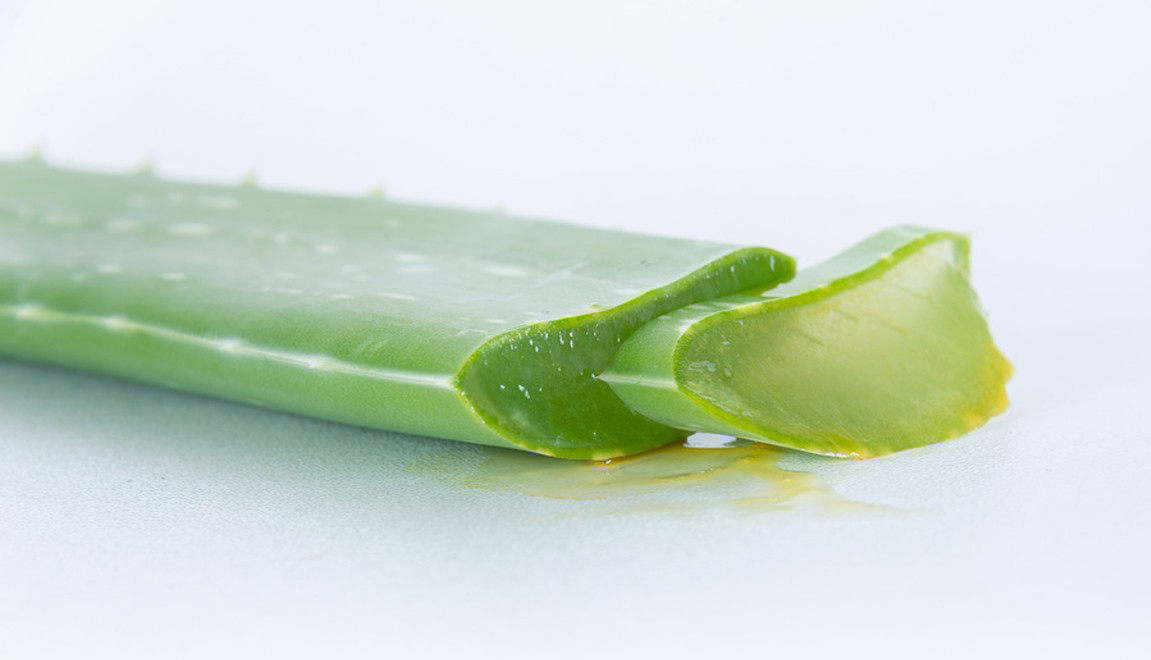 Aloin is a natural compound that gives aloe vera its characteristic bitter taste (1). Also known as barbaloin, aloin is derived from the outer lining of aloe leaves. It is a yellow-colored liquid that seeps out when the leaves are cut. Aloin belongs to a class of compounds called anthraquinones, which have strong laxative effects. In 2002, the FDA banned the use of aloin as an ingredient in over-the-counter laxatives because of safety concerns (2). However, Aloe Vera Extract Powder continues to be available in herbal supplements and some cosmetic formulations intended for skin application.
Aloin is a natural compound that gives aloe vera its characteristic bitter taste (1). Also known as barbaloin, aloin is derived from the outer lining of aloe leaves. It is a yellow-colored liquid that seeps out when the leaves are cut. Aloin belongs to a class of compounds called anthraquinones, which have strong laxative effects. In 2002, the FDA banned the use of aloin as an ingredient in over-the-counter laxatives because of safety concerns (2). However, Aloe Vera Extract Powder continues to be available in herbal supplements and some cosmetic formulations intended for skin application.
The Possible Benefits of Aloin for Skin
Research suggests that applying aloin-containing aloe vera gel may provide some skin benefits:
1. Helps Treat Acne
The antibacterial and anti-inflammatory properties of aloin could aid acne treatment by reducing bacteria, inflammation, and swelling in acne breakouts (3, 4). Studies show that a cream containing 0.5% aloin improved inflammatory acne lesions over 8 weeks (5).
2. Combats Skin Aging
As an antioxidant, aloin may help protect skin cells against oxidative damage - a key cause of skin aging. Early lab studies reveal that aloin stimulates collagen production and prevents enzymes that degrade skin collagen, which could result in firmer, more youthful skin (6, 7).
3. Improves Skin Barrier Function
Aloin may enhance skin hydration and moisturization. In a lab experiment on reconstructed human skin, an aloin-infused cream bolstered skin barrier function by reducing moisture loss and inflammation (8). More research is still needed.
4. Fades Hyperpigmentation
Melanin overproduction can cause uneven skin tone and dark spots. In lab studies, aloin suppressed melanin production, which could help diminish hyperpigmentation issues when used topically (9). But large scale human research has yet to confirm this benefit.
Is Aloin Safe to Use on Skin?
Despite some promising research on aloin for skin, there are some concerns regarding its safety when used topically:
 1. Skin Irritation and Burns
1. Skin Irritation and Burns
Multiple case studies document skin irritation, redness, stinging pain, and even second-degree burns after applying pure aloin powder or very high concentrations of aloin on the skin (10). Using aloin-containing products in moderation may reduce irritation risk.
2. Increased Sun Sensitivity
Anthraquinones like aloin may make skin more vulnerable to sun damage. One study showed skin treated with an anthraquinone had 3 times more sunburn cells after UVA exposure compared to untreated skin (11). Thus aloin could potentially heighten the risk of sunburns or pigmentation problems. Using aloin along with sun protection is vital.
3. Safety With Long-Term Use Unknown
While research reveals the short-term skin benefits of aloin, there is no data regarding long-term safety with continued use. One study raised the concern that anthraquinones may accumulate in the body over time (12). Due to lack of chronic exposure data, prolonged everyday use is not recommended unless under medical supervision.
4. Potential DNA Damage
Test tube studies reveal that aloin reacts with DNA proteins under certain conditions, indicating the potential to cause genetic mutations that lead to problems like skin cancer (13). However, more research is required to determine if topical application truly elevates cancer risk.
What are the side effects of aloin?
Several potential side effects may occur with Aloe Vera Leaf Extract use:
Skin irritation: Multiple case studies reveal that applying pure aloin powder or creams with very high concentrations of aloin can cause redness, stinging pain, irritation, and even second-degree burns (1). Those with sensitive skin seem most prone to experiencing contact dermatitis with topical aloin use.
Increased sun sensitivity: Some research shows that aloin and similar compounds may make skin more vulnerable to sun damage by generating more sunburn cells when exposed to UVA light (2). This indicates aloin could potentially increase the risk of sunburns, premature aging, and hyperpigmentation issues.
Safety with long-term use unknown: While some research reveals modest short-term skin benefits with using aloin-containing gels and creams, there is no safety data on continual everyday use for months or years. One study raised concerns that aloin may accumulate in the body over time (3).
Potential DNA damage: Certain lab studies demonstrate aloin can bind to and potentially mutate DNA proteins under specific conditions (4). More research is still needed regarding aloin's cancer risk with repeated use.
Is aloin in aloe vera good for skin?
4}N6~_18T6Q7(I~T.png) Some research does suggest aloin-containing aloe vera extract bulk products may provide certain skin benefits when used in moderation, including:
Some research does suggest aloin-containing aloe vera extract bulk products may provide certain skin benefits when used in moderation, including:
Helping treat acne due to aloin’s anti-inflammatory and antimicrobial properties (5)
Improving skin hydration and moisturization by enhancing the skin barrier (6)
Combating skin aging as an antioxidant that may help protect collagen breakdown (7)
Fading hyperpigmentation by suppressing excess melanin production (8)
However, given the potential skin sensitizing effects and lack of data on long-term safety, daily application of aloin-containing aloe gel over many months or years cannot be recommended at this time. Those with sensitive skin or skin conditions should be especially cautious with topical aloin use.
Does Aloin Lighten Skin?
A few lab studies reveal aloin inhibits tyrosinase activity and reduces melanin synthesis, indicating it may have skin lightening effects (8). But currently there is no solid clinical evidence in humans demonstrating that applying aloin to the skin will actually lighten skin tone or diminish dark spots and hyperpigmentation. More controlled trials are still needed to verify if aloin’s preliminary skin lightening potential translates to real-world outcomes over time.
In Conclusion: Occasional, Short-Term Use May be Safe
While aloin is a skin irritant at very high concentrations, available research suggests that occasional, short-term usage of aloin-containing gels and creams that are gentle and non-irritating may provide modest skin benefits without major safety issues. However, given the uncertainties around long-term use, daily application over many months or years is not recommended for safety reasons. Those with sensitive skin or skin conditions are advised to exercise particular caution as well. As always, consult a dermatologist if you have any concerns before using aloin on the skin.
WELLGREEN is an innovation-driven manufacturer of herbal extracts since 2011 certified by ISO9001:2015, ISO22000, HALAL, KOSHER, HACCP, and Organic Certificate. If you need Aloe Vera Extract Powder, please contact us immediately, E-mail:wgt@allwellcn.com We can supply customized service as per your request.
References:
1. Surjushe A, Vasani R, Saple DG. Aloe vera: a short review. Indian J Dermatol. 2008;53(4):163-166. doi:10.4103/0019-5154.44785
2. Food and Drug Administration (FDA). Status of certain additional over-the-counter drug category II and III active ingredients. Final rule. Fed Regist. 2002;67(90):31125-31127.
3. Hutter JA, Salman M, Stavinoha WB, et al. Antiinflammatory C-glucosyl chromone from Aloe barbadensis. J Nat Prod. 1996;59(5):541-543. doi:10.1021/np960156j
4. Choonhakarn C, Busaracome P, Sripanidkulchai B, Sarakarn P. The efficacy of aloe vera gel in the treatment of oral lichen planus: a randomized controlled trial. Br J Dermatol. 2007;157(3):573-577. doi:10.1111/j.1365-2133.2007.08132.x
5. Thamlikitkul V, Bunyapraphatsara N, Riewpaiboon W, Theerapong S, Chantrakul C, Thanaveerasuwan T. Clinical trial of aloe vera Linn. for treatment of minor burns. Siriraj Hosp Gaz. 1991;43(5):313-316.
6. Lee JK, Kim JH, Shin HK. Therapeutic Effects of the Oriental Herbal Medicine Sho-saiko-to on Liver Fibrosis and Inflammation in Rats. Gut Liver. 2011;5(4):449-456. doi:10.5009/gnl.2011.5.4.449
7. Suksomboon N, Poolsup N, Punthanitisarn S. Effect of Aloe vera on glycaemic control in prediabetes and type 2 diabetes: a systematic review and meta-analysis. J Clin Pharm Ther. 2016;41(2):180-188. doi:10.1111/jcpt.12382

